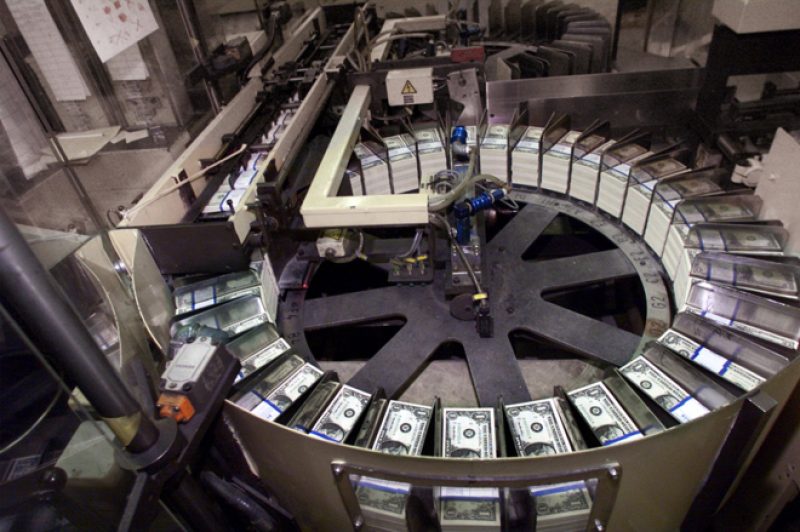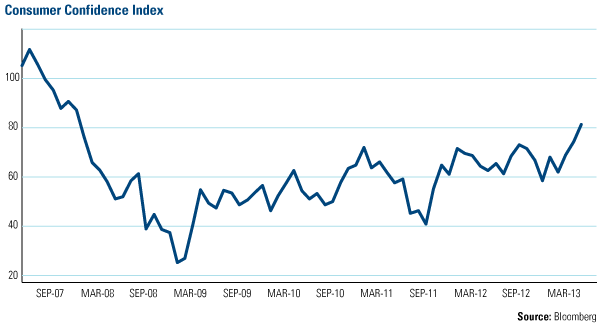The Economy and Bond Market Radar (July 1, 2013)
After a dramatic sell-off in the bond markets last week, treasuries recovered some this week as yields fell. Fed officials were out in force this week trying to convince the market it misunderstood the Fed’s message, and that may have played a role in calming the markets. The more plausible explanation is the market overshot and a normal retracing of some of the move was likely. The market is worried that the positive economic momentum we have seen recently will continue. This can be seen in the consumer confidence numbers that were released this week, which hit a five-year high.
Strengths
- The Conference Board’s Consumer Confidence Index hit the highest level in more than five years in June. The University of Michigan Confidence report for June was also better than expected.
- Existing home sales rose 6.7 percent in May to the highest level since 2006. Buyers appear to be rushing to lock in mortgages as rates move higher.
- Durable goods orders rose 3.6 percent in May, ahead of expectations.
Weaknesses
- First quarter GDP was surprisingly revised lower to 1.8 percent from 2.4 percent. It is a little unusual to see such a large revision at this stage of the process. It also highlights how weak the economy has been.
- The Chicago Purchasing Manager Index (PMI) unexpectedly dropped sharply in June, but remained in expansion territory.
- Early in the week, China’s short-term repo market experienced a spike in yields and essentially a liquidity crunch. The government stepped in and intervened later in the week, but this highlights the risks to the global economy.
Opportunity
- Despite recent commentary, the Fed continues to remain committed to an accommodative policy.
- Key global central bankers, such as the European Central Bank (ECB), Bank of England and the Bank of Japan, are still in easing mode
- The recent sell-off in bonds is likely an opportunity as higher yields will act as a brake on the economy and potentially become self-fulfilling, thus postponing Fed tapering.
Threat
- Inflation in some corners of the globe is getting the attention of policymakers and may be an early indicator for the rest of the world.
- Trade and/or currency “wars” cannot be ruled out, which may cause unintended consequences and volatility in the financial markets.
- The recent bond market sell-off may be a “shot across the bow” as the markets reassess the changing macro dynamics.










